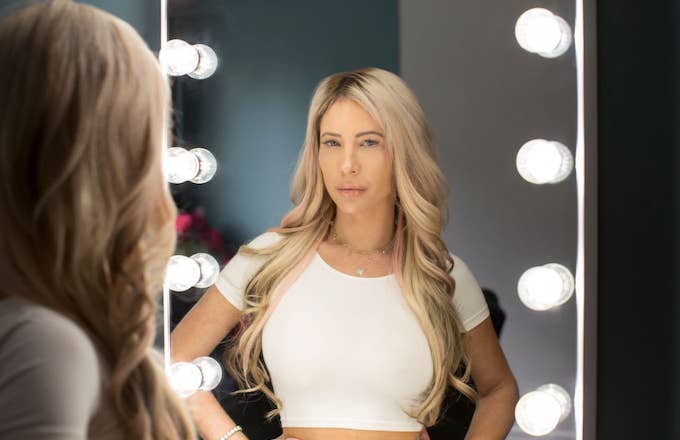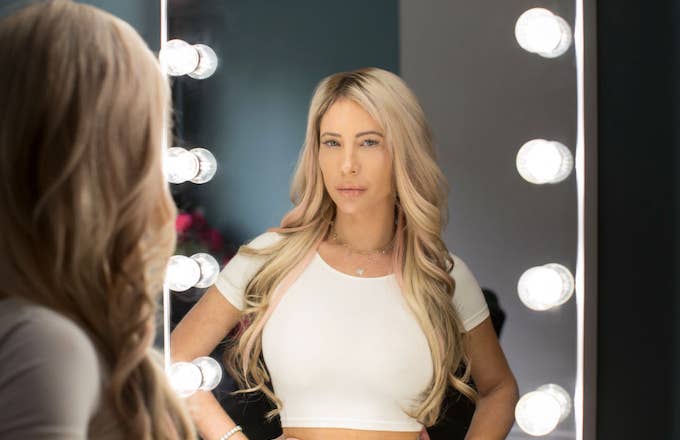
“I wish that it wasn’t what all my interviews were about.”
Tasha Reign is cheerful and patient, but she’s frustrated. I’m on the phone with Reign, an adult performer (porn star, porn actress, sex worker—many in the industry are catholic about the terms they use) and the chairperson of Adult Performer Advocacy Committee, better known by its acronym APAC, asking about the five porn actresses who died recently within weeks of each other.
I wish the media would cover the adult industry in times of goodness and happiness... instead of just when there are suicides and dark times.
She keeps going. “I also wish that the media would cover the adult industry in times of goodness and happiness. When performers are being the artists that they are, and doing well and creating content and unique things and thriving, instead of just when there are suicides and dark times. I think that’s actually a huge part of the issue in and of itself.”
Her frustration is understandable. The deaths of Shyla Stylez, August Ames, Olivia Nova, Yurizan Beltran, and Olivia Lua all occurred between November, 2017 and January, 2018. The tragic cluster got national media attention from all sorts of outlets, including places which only cover the industry when something outrageous happens—or when talking about the president. There was no direct connection between the deaths, which happened for a variety of reasons ranging from suicide to sepsis to overdose.
“I would love if there were one clear solution for why we’ve lost the five performers in the past few months,” says Mike Stabile, the communications director for the Free Speech Coalition, an industry advocacy group. “I don’t think there is. If there were, it would be so much easier.” Similarly, the mononymed Ruby, the vice president of the Adult Performers Actors Guild (APAG), a performers’ union, points out that the deaths mirror rising rates nationally of suicide and drug addiction. “They were bound to reflect in our industry,” she comments via email.
What Stabile, Reign, Ruby, and other performers and advocates are trying to do is take on a number of issues that affect their sex worker compatriots. They want to make a stigmatized and sometimes economically precarious job safer. And, as with any profession—and certainly this cinematic variation on the oldest one—the way to improve things lies first and foremost in listening to the people who do it.
Suicide, as many of the people I talked to in the industry pointed out, is sadly common in many artistic communities. Mia Li, APAC’s president and an adult performer and cam model, noted that she’s seen more than her share of suicides in the peer groups of artists she knows.
The Money: ‘It’s Now About Clicks and Shock Value’
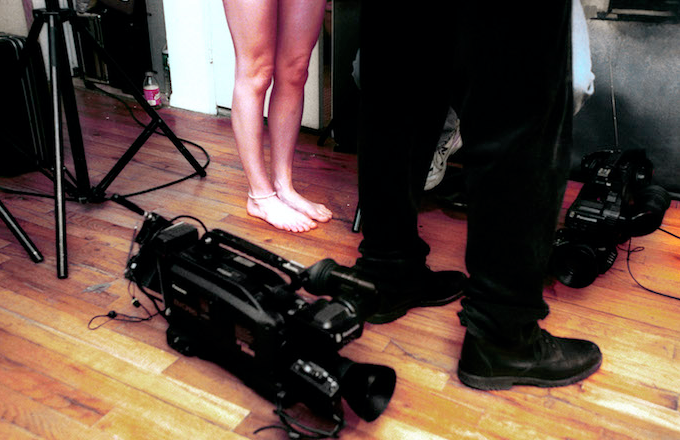
The Stigma: ‘There’s No Way to Explain What It’s Like to Have Your Entire Community Turn Their Backs on You’
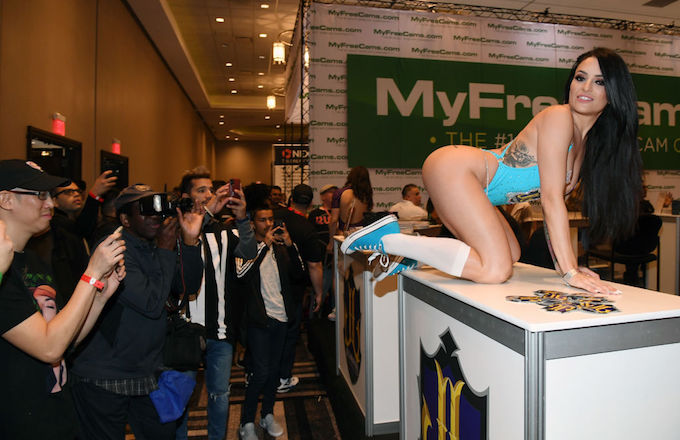
One thing that has remained constant in the porn world is the stigma. “Once that line is crossed where another person on camera is touching your genitals, or you’re touching theirs, that is a line that can’t be taken back,” Nina Hartley, a veteran performer who has been in movies since the mid-1980s, explains.
Tasha Reign remembers first expressing interest in being in adult films, and having a makeup artist friend take her to a set to see what it was all about. She saw Selena Rose shoot a scene, and was hooked. (“I was like, ‘I’m sold! That’s what I want to do for work,’” Reign says excitedly when relaying the story to me.)
And then a male performer on set offered to take her out to eat after hearing she was interested in joining his ranks.
“When he took me to dinner, he was like, ‘Please don’t do this job. People will reject you and treat you so differently. I don’t think you understand,’” Reign recalls. “And he tried to explain it, but there’s just no way to explain what it’s like to wake up and have your entire community basically turn their backs on you because they think that what you do is morally wrong or there’s something wrong with you. It’s a horrible feeling.”
Siouxsie Q. James, APAC secretary and host of the Whorecast, finds herself in the position of giving similar warnings to new talent.
“I tell people when they enter the industry, ‘If you are on the internet in any capacity as a sex working person, you are now a whore forever.’ And I say that with all the love in my heart, but with all the reality in my heart. Porn is forever. You want to go work in a strip club for a couple of months, keep your face off the internet. Work your shift, make your money, go home. There's a possibility there. But with porn, you have that scarlet letter forever, and it can and it will affect your life, because the stigma associated with our industry is so fierce and so cruel.”
That stigma—that being sexual in public is wrong—spills out into every aspect of society. It can get you fired. It can cause you to be shunned by those closest to you. It can make it harder to report sexual harassment or assault, whether on the job or otherwise. It can even make it tough to find a doctor or a therapist.
James informs me bluntly that something as simple as routine doctor visits can be difficult for sex workers.
“It was such a slap in the face,” she remembers about attitudes held by medical professionals. “I had medical providers tell me to get a different job, because I came in and had a cold or something. How traumatic is it, in each of our lives, when we go to see our gynecologist, and we talk about what we do? It sucks every time.”
Even finding a therapist can be tough, she continues. “I've had mental health providers ask me on the first day if my job is a form of self-harm. I'm like, ‘I'm here to talk about my mother. The job's fine.’”
“I've had mental health providers ask me on the first day if my job is a form of self-harm. I'm like, ‘I'm here to talk about my mother. The job's fine.’”
“There's this trigger point for so many people in our community of not having safe access to health care,” James sums up. “Be it mental health, or addiction resources, or even just going to the gynecologist. There's a gap. There's a real, tangible gap there right now.”
To Scarlett Sin, a “professional dominant” who has a psychology degree and a Master of Social Work and serves as FSC’s new Social Work and Health Systems Specialist, the issues with doctors and therapists start even before they begin practicing.
“Those problems start out from the programs themselves where people come from,” she tells me. “There really is no focus on what sex work is and isn’t. There’s still the victim narrative of sex workers and assigning fault on why someone might become a sex worker. So that already taints how a mental health professional might approach a sex worker. Pair that with all the other stigmatization, it becomes really difficult for someone who is a sex worker to find a professional. I’m not just necessarily talking about a mental health professional, but any professional.”
Life During Trump: ‘We Have Felt Under Assault’

Solutions: ‘I’m Optimistic About the Future’

The New Business Model: ‘I Am the CEO’

What You Can Do: ‘Humanize Us’
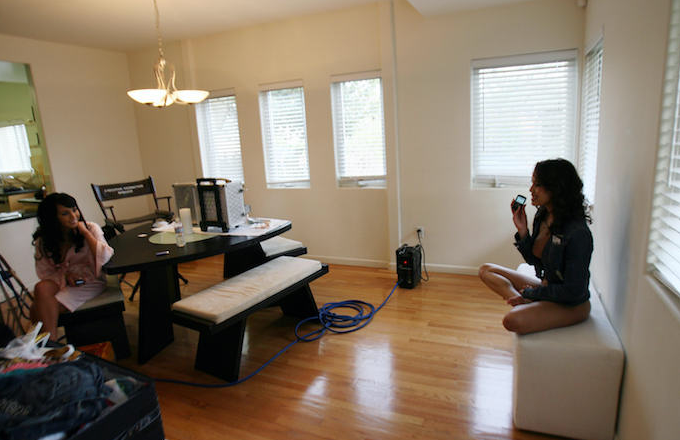
But community within the business itself can only go so far. Alana Evans, APAG’s Vice President, ends our conversation with a crucial message on what her industry needs from a wider world that needs its product while shunning and stigmatizing the people who create it.
“While the world sees us falling into crisis, there are those of us here who are coming together as quickly as we can to help the people that we care about, which is all of our performers within the industry,” she closes. “And having support and love from the outside world without the hate and judgment is really the biggest thing that we can ask for.”
It’s a sentiment James seconds.
having support and love from the outside world without the hate and judgment is really the biggest thing that we can ask for.
“Humanize us in your interactions with your peers,” she suggests. “When someone comes out to you as a sex worker, support them and be nice. I've had activists compare the situation to being gay in the ‘80s. You didn't think that you knew someone who was gay. But now most of us know several gay people, even if they're not out to us yet.
“It's the same with sex work. You think you may not know a sex worker, but you probably do. And if you display that you're a nice, safe person about sex work, I bet you'll know a lot more sex workers pretty soon.”

